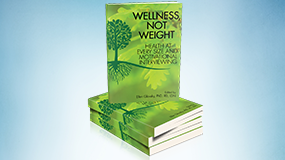Weight Watchers or “Self Compassion”?

This was originally published in the CommonHealth Blog of WBUR, Boston’s NPR radio station. This article is in response to the death in April of Jean Nidetch, the founder of Weight Watchers. This article was written by my friend and colleague, Jean Fain, author of The Self Compassion Diet .
As the embodiment of Weight Watchers, Jean Nidetch did a lot of good. Her success (she lost 72 pounds and kept it off) inspired waist watchers to stop looking to medical professionals to solve their eating issues and to start finding inspiration, strength and direction from those who understand the problem far better – other successful dieters.
With a little support from fellow Weight Watchers, members not only learn that yes, they can lose weight, they find out they can have a lot more fun as group, rather than try to go it alone.
Inadvertently, Nidetch also did real harm with her eating system and the conditional support that goes with it. (Members get applause and other positive reinforcements for losing weight, for instance, but little or nothing for gaining weight.)
While Weight Watchers insiders claim their program is more successful than other diets, studies to each other do not support that. Whether or not the international slimming organization actually has a 16% success rate, (a number quoted in the book “Secrets from the Eating Lab” by Traci Mann) truth be told, the overwhelming majority regain what they lose and sometimes more. Diets like the one the organization promotes can exacerbate the very eating problems they were hoping to resolve. When that happens, those who most need support are least likely to get it because they’re too ashamed to go to meetings, let alone get weighed in.
More than a Weight Watchers ice cream bar, a lo-cal recipe or the conditional support of a group that fails to acknowledge the shame that members carry, what waist watchers need more than anything is a heaping helping of self-compassion.
Compassion for yourself is the missing ingredient, the antidote to this and most other weight-loss programs because most plans revolve around self-discipline, deprivation and neglect. You’re supposed to stick to the plan no matter what. If you’re starving, keep eating tiny portions. If you’re exhausted, keep moving – no pain, no gain. Going on vacation? Keep counting points, calories or carbs. It’s not a very compassionate (or realistic) approach; it’s not very effective. And it’s no fun.
Even the new, improved, more flexible Weight Watchers food plan requires you stick to it no matter what. You wouldn’t treat a child with this level of rigidity, so why impose it on yourself? Only when you treat yourself like a friend or a loved one, with kindness and flexibility, can you learn what’s really needed — to eat when you’re hungry and stop when you’re full, and find your healthy, sustainable weight. Often it takes a lifetime.
Whether she is teaching at Harvard Medical School, seeing clients in her private practice, writing articles and books, giving lectures or consultations, Jean Fain is dedicated to helping people keep physically, emotionally and mentally fit.
She is a licensed psychotherapist and a certified hypnotherapist. She is trained in several therapeutic approaches, all of which fall under the umbrella of behavioral medicine or mind-body medicine. Jean states on her website, “Mine is an integrative approach that combines cognitive-behavioral therapy and mindfulness-based psychotherapy, among other schools of therapy.”
Jean is a veteran journalist, and has been writing health and fitness features for newspapers (from the Boston Globe to the LA Times) and magazines (including Oprah Magazine, Conde Nast Traveler, Self) for three decades plus. Through the ‘80s, she wrote a syndicated fitness column, distributed world-wide by The LA Times Syndicate. The Self-Compassion Diet, the book and the audio companion, is published by Sounds True.
Jean Fain can be reached through her website, www.JeanFain.com



